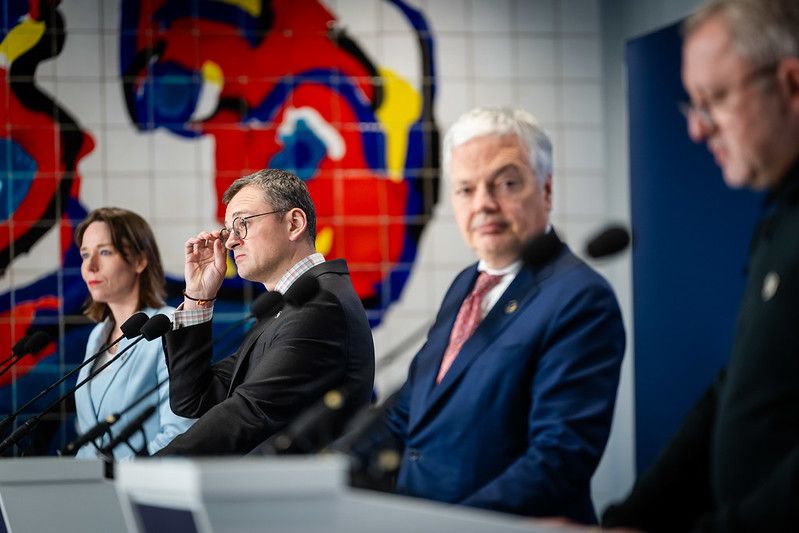At the Restoring Justice for Ukraine conference held in the Netherlands, over 40 countries called for the establishment of a special tribunal to hold Russia accountable for war crimes committed in Ukraine. The conference addressed part of President Volodymyr Zelensky’s 10-point peace formula, specifically focusing on “restoring justice.” The Netherlands, as the host country of the International Criminal Court (ICC), has taken the lead on this aspect of Ukraine’s peace plan. Dutch Foreign Minister Hanke Bruins Slot stated that they are willing to ensure that the perpetrators of war crimes are brought to justice, even at an international level. The conference published a political declaration signed by 44 countries condemning Russian aggression in Ukraine and advocating for the establishment of a special tribunal to investigate and prosecute Russian crimes. The declaration also called for Russia to pay compensatory damages for the crimes inflicted on Ukrainians. The Netherlands offered to host both the tribunal and a compensation mechanism, with the Register of Damage for Ukraine already operational and processing claims.
The conference was chaired by Dutch Foreign Minister Hanke Bruins Slot, Ukrainian Foreign Minister Dmytro Kuleba, Dutch Justice Minister Dilan Yesilgoz, and European Justice Commissioner Didier Reynders. Ukrainian officials have documented thousands of war crimes committed by Russian forces, including attacks on civilians, cultural sites, medical institutions, torture, and deportations. The Prosecutor General’s Office of Ukraine reported that over 128,000 victims of war crimes have been documented through pretrial information. The establishment of a special tribunal and compensation mechanism is crucial in holding Russia accountable for its actions in Ukraine and ensuring justice for the victims. This initiative aims to address the crimes of aggression committed by Russia and to make sure that Russia pays for the damage inflicted.
In parallel to the efforts at the Restoring Justice for Ukraine conference, the UN’s International Court of Justice (ICJ) is currently hearing cases related to genocide in Ukraine as the country seeks justice for Russia’s ongoing crimes against it. Experts have expressed concerns that the approach taken by the ICJ in these cases may lead to more instability. The ICJ’s involvement in addressing the genocide in Ukraine is significant in seeking accountability for Russia’s actions. However, the potential consequences of the court’s decisions on the stability of the region need to be carefully considered. The pursuit of justice through international legal mechanisms is essential in addressing violations of human rights and ensuring that perpetrators are held accountable for their actions.
The conference also highlighted the need for Russia to pay compensatory damages for the crimes committed in Ukraine. The establishment of a compensation mechanism, such as the Register of Damage for Ukraine, allows Ukrainians to enter claims for damages caused by Russia’s invasion. This mechanism has already processed over 100 claims, showcasing its effectiveness in providing victims with a means to seek compensation for their losses. The conference’s political declaration called for exploring the use of frozen Russian assets to pay the compensatory damages, indicating a comprehensive approach to holding Russia accountable and providing justice to the victims. By advocating for both a special tribunal and a compensation mechanism, the conference aims to ensure that Russia faces consequences for its actions in Ukraine and that the victims receive the support they deserve.
Overall, the efforts at the Restoring Justice for Ukraine conference and the ongoing cases at the ICJ demonstrate the collective commitment of the international community to seek justice for the crimes committed in Ukraine. By condemning Russian aggression and advocating for legal mechanisms to hold perpetrators accountable, the conference participants are taking significant steps towards restoring justice in Ukraine. The establishment of a special tribunal, a compensation mechanism, and the pursuit of legal proceedings at the international level are essential in addressing the violations of human rights and ensuring that those responsible are held accountable for their actions. The collaboration of multiple countries and international organizations in this initiative reflects a strong determination to stand against impunity and support the victims of war crimes in Ukraine.


